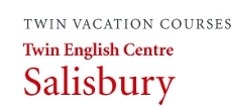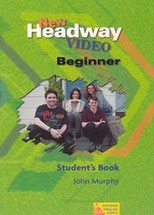 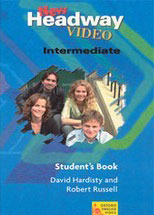 Unit 1
What a wonderful world!
Grammar: Auxiliary verbs do, be, have. Naming the tenses. Questions and negatives. Short answers.
Vocabulary: Sounds and spelling: meat /I:/, great /ei/. Silent letters: knee /ni:/.
Postscript: Social expressions: Never mind! It''s my round. You must be joking!
Reading: Topic. "Wonders of the modern world".
Speaking: Information gap - The life of a Times journalist. Discussion - What''s the most important invention?
Listening: Topic. "A group of people talk about their wonders of the modern world".
Writing: Correcting language mistakes in an informal letter. Symbols for correction.
Unit 2
Happiness!
Grammar: Present time. Present Simple and Continuous. Action and state verbs walk, know. Present passive.
Vocabulary: Sports and leisure activities play tennis, go swimming, do aerobics.
Postscript: Numbers. Money, fractions, decimals, percentages, phone numbers, dates.
Reading: Topic. "Sister Wendy, TV star" - the nun who is also a TV star.
Speaking: Discussion - What''s important to you in life? Clothes? Travel? Talking about favorite sports.
Listening: Topic. "Three people talk about their favorite sport or leisure activity".
Writing: Descriptive writing. Describing a person. Adverbs of degree quite young rather attractive.
Unit 3
Telling tales.
Grammar: Past time. Past Simple and Continuous. Past Simple and Past Perfect. Past passive.
Vocabulary: Art, music and literature chapter, orchestra. Verbs and nouns that together paint a portrait.
Postscript: Giving opinions. What did you think of the play? It was boring!
Reading: Topic. "The writer, the painter and the musician" (jigsaw).
Speaking: Talking about your favorite poem, piece, piece of music, or painting. Exchanging information about a famous writer, painter and musician.
Listening: Topic. "The holiday that wasn''t - a frightening holiday experience".
Writing: Writing a narrative. My worst holiday. Adverbs suddenly, however.
Unit 4
Doing the right thing.
Grammar: Modal verbs (1). Obligation and permission can, have to, allowed to, must, mustn''t, should.
Vocabulary: Adjectives that describe people punctual friendly. Word formation behave - behaviour,stranger - strange.
Postscript: Requests and offers. Could you…? Can you…? I''ll… Shall I…?
Reading: Topic. "A world guide to good manners" - how to behave properly in different parts of the world.
Speaking: Talking about school rules. Nationality stereotypes. Discussion - the rules of etiquette in different countries.
Listening: Topic. "School days long ago. Entertaining friends in three different countries".
Writing: Filling in a form.
Unit 5
On the move.
Grammar: Future forms going to and will. Present Continuous.
Vocabulary: The weather storm, shower, chilly, freezing.
Postscript: Travelling around. Using public transport. Requests in a hotel.
Reading: Topic. "If it''s Tuesday we must be in Munich" - American tourists in Europe.
Speaking: Arranging to meet. Class survey - favourite holidays.
Listening: Topic. "The geography of the British Isles" - a weather forecast.
Writing: Sending a fax.
Unit 6
Likes and dislikes.
Grammar: Questions with like. Do you like tea? What''s she like? Verb patterns want to do, enjoy meeting.
Vocabulary: Words that go together tall people, historic town, rich food.
Postscript: Signs and soundbites. Dry clean only. I''m just looking, thank you.
Reading: Topic. "In search of (good) English food" - a history of English food.
Speaking: Talking about food, cooking and restaurants. Exchanging information about capital cities.
Listening: Topic. "Two English people talk about living in New York; an American gives her impressions of living in London" (jigsaw).
Writing: Descriptive writing (2). Describing a room. Relative pronouns who, which, that, where, whose.
Unit 7
The world of work.
Grammar: Present Perfect Simple. Present Perfect vs. Past Simple. Present Perfect passive.
Vocabulary: Multi-word verbs look after us, turn on the light.
Postscript: On the telephone. Do you want to hold? Can I take a message? Leaving a message on an answer phone.
Reading: Topic. "The modern servant" - the nanny, the cook and the gardener (jigsaw)".
Speaking: Exchanging information about the lives of three modern servants. Roleplay - choosing a career. Discussion - retirement.
Listening: Topic. "Thomas Wilson - a retired man talks to his granddaughter about his life".
Writing: Formal letters. A letter of application.
Unit 8
Imagine!
Grammar: Conditionals. First conditional. Second conditional. Zero conditional. Time clauses when, as soon as.
Vocabulary: Base and strong adjectives big, huge. Modifying adverbs very big, absolutely enormous.
Postscript: Making suggestions. Let''s go shopping! You ought to ask for a pay rise.
Reading: Topic. "Who wants to be a millionaire? We do!" - the ups and downs of winning a fortune.
Speaking: Maze - you''ve won 5m. Where will your life go from here? Discussion - Which charity would you give to?
Listening: Song - "Who wants to be a millionaire?" Three charity appeals - Which one would you give to?
Writing: Words that join ideas. Linking devices and comment adverbs in an informal letter although, however, actually, anyway.
Unit 9
Relationships.
Grammar: Modal verbs (2). Probability (present and past) must/be, might/have been, can''t/go, could/have gone.
Vocabulary: Character adjectives sociable, easy-going.
Postscript: Agreeing and disagreeing. So do I! Neither do I!
Reading: Topic. "The man who planted trees" - a short story by Jean Giono, which shows how the actions of one person can change the world.
Speaking: Quiz - What sort of person are you? Class survey about brothers and sisters.
Listening: Topic. "Two people talk about their families - one from a large family, the other an only child".
Writing: Sentence combination. Describing a person and a place.
Unit 10
Obsessions.
Grammar: Present Perfect Continuous. Simple vs Continuous. Present Perfect vs Past Simple. Time expressions since I left school, until I met Jack.
Vocabulary: Compound nouns postcard, post office, dining room.
Postscript: Complaining too much, not enough. The soup''s too salty.
Reading: Topic. "Death cigarettes? You must be joking!" - an interview with the man who markets a cigarette called Death".
Speaking: Discussion - the right to smoke? Exchanging information about two collectors. Guessing game.
Listening: Topic. "Collectors and their collections" (jigsaw).
Writing: Beginning and ending letters, formal and informal.
Unit 11
Tell me about it!
Grammar: Indirect questions. I don''t know where he lives. Question tags. It''s a lovely day, isn''t it?
Vocabulary: Verbs and nouns that go together whistle a tune. Idioms drop someone a line.
Postscript: Informal language ninety quid. What''s up with him?
Reading: Topic. "You ask…we answer" - questions and answers from a science magazine.
Speaking: Information gap - Madame Tussaud''s. Stories of forgetfulness.
Listening: Topic. "The forgetful generation" - a radio programme.
Writing: Producing a class poster. For and against - living in the city what is more, on the plus side.
Unit 12
Two weddings, a birth and a funeral!
Grammar: Reported speech. Reported statements and questions. Reported commands.
Vocabulary: Words connected with birth, marriage and death honeymoon, pram. Practice of the phonetic script.
Postscript: Saying sorry. Pardon? Excuse me! Social situations.
Reading: Topic. "David Copperfield" - an extract about the day of David''s birth from the novel by Charles Dickens.
Speaking: Discussion - What are the customs connected with births, weddings and funerals? The day I was born!
Listening: Topic. "Two people give statements to the police" (jigsaw). A poem - "Funeral blues" by W H Auden.
Writing: Correcting language mistakes in an informal letter. 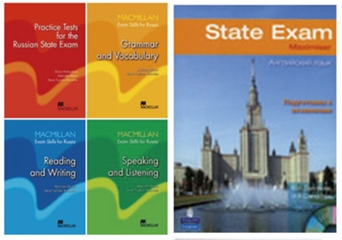 Учебники ЕГЭ
1. Пособие Macmillan (4 книги + CD)
Язык: English
Допущено Федеральным институтом педагогических измерений к использованию в образовательных учреждениях Российской Федерации в качестве учебных пособий для подготовки к единому государственному экзамену по английскому языку
Practice Tests for the Russian State Exam - тесты для подготовки к выпускным экзаменам по английскому языку в новом формате. При разработке тестов в полной мере учитывались требования ЕГЭ по английскому языку Министерства образования и науки РФ, а также требования Совета Европы к уровню владения иностранными языками.
Учебное пособие содержит:
* 20 тестов в формате ЕГЭ;
* разъяснение особенностей формата экзамена;
* советы учащимся по выполнению заданий в разделах Аудирование, Говорение, Чтение и Письмо;
* упражнения на повторение лексического и грамматического материала, включая повторение видо-временных форм глагола, фразовых глаголов, а также средств и способов словообразования;
* рекомендации по овладению различными видами речевой деятельности.
* аудиокурс
2. Пособие “State Exam Maximiser” 2 книги + СD
– пособие нового типа, которое помогает сформировать и развить умения рационального подхода к работе с экзаменационными материалами. Представленные в данном пособии материалы подготовлены с учетом спецификаций ЕГЭ 2000-2006 гг., требований Государственных образовательных стандартов для полной средней и профильной школы по иностранным языкам, а также с учетом перспектив развития ЕГЭ на 2009 г. State Exam Maximiser также может служить материалом для подготовки к другим языковы экзаменам и стать основой для разработки элективных курсов в системе дополнительного языкового образования. |
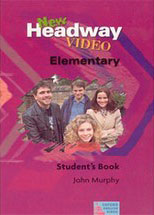 Unit 1
Hello!
Grammar: Verb to be am/is/are. Possessive adjectives my, your, her, his
Vocabulary: Names of countries. Using a bilingual dictionary. Everyday objects stamp, hug. key. Keeping a vocabulary book
Everyday English: The alphabet. How do you spell.?
Skills work: Listening and speaking. ''Hello and goodbye''
Grammar: a or an? a boy, an apple
Vocabulary: Countries and nationalities. Word stress Turkey, Japan Numbers 1-100. Telephone numbers
Writing:
Unit 2
People
Grammar: Verb to be. Questions and negatives. Possessive''s Martin'' s son
Vocabulary: Family relationships mother, uncle. Opposite adjectives old - young, big - small
Everyday English: In a cafe. Can I have a .? Food and drink a ham sandwich, a cup of tea
Skills work: Reading and listening. Paola''s letter. Five conversations in Paola''s day
Grammar: Plural nouns; books, bliss''s, countries. people
Vocabulary: What''s the matter? I''m tired. Saying prices
Writing:
Unit 3
Work
Grammar: Present Simple (1) 3rd person She teaches French. questions and negatives
Vocabulary: Jobs; A pilot/lies a plane.
Everyday English: What time is it? Can you tell me [lie time. please?
Skills work: Reading and listening ''The long-distance teacher'' .Listening and speaking. Five conversations in Frank''s day
Grammar: Spelling of 3rd person singular goes, washes. Flies. Question words Where? How old?
Vocabulary: Daily routines get up, go to work Verbs and nouns that go together cook dinner
Writing: Personal pronouns and possessive adjectives I, me, my Rewriting a text
Unit 4
Free time
Grammar: Present Simple (2) all persons On Saturdays 1 get up at 9.00. I love cooking! Articles; She''s a student. I work /or The Times. We go to work by car.
Vocabulary: Free time activities; painting, sailing play or go; play football go dancing
Everyday English: Social English Excuse me. I''m sorry. Pardon?
Skills work: Reading and listening Three people talk about their free time and favourite season. Speaking What''s your favourite season?
Grammar: Adverbs of frequency always, never
Vocabulary: Opposites love - hate
Writing: An informal letter A letter to a penfriend
Test1
Unit 5
Places
Grammar: There is/are Prepositions of place; The dog is in front of the fire. some and any with countable nouns; There are some apples. Are there any oranges?
Vocabulary: Things in the house; living room. armchair, mirror. Places, people, food, and drink; house, children, wine
Everyday English: Directions (1); Excuse me! Is there a chemist''s near here?
Skills work: Speaking and listening Picture differences: the living room. Reading ''Inside Buckingham Palace''. Listening and speaking. Where I live.
Grammar: this/that/these/those. Do you like this photograph?
Vocabulary: Rooms and objects bathroom, soap. Numbers 100-1,000
Writing: Linking words and, so, but, because Writing about where you live
Unit 6
What can you do?
Grammar: can/can''t. I can speak French, hut I can''t speak Japanese. was/were - could ; I could swim when I was five.
Vocabulary: Skills and abilities; I can use a word processor. Words that sound the same; hear/here, see/sea
Everyday English: At the airport; Can I see your passport, please?
Skills work: Speaking. What can computers do? Reading and speaking (jigsaw). ''Two teenage geniuses''
Grammar: How much? How much was it before?
Vocabulary: Saying years. 1915 - nineteen fifteen. Words that go together ask - a question
Writing: A formal letter. A letter of application for a job
Unit 7
Then and now
Grammar: Past Simple (1); regular verbs She started work in 1916. questions and negatives; When did she die? irregular verbs; He left school in 1982.
Vocabulary: Words with silent letters eight /eit/ ; listen /lisn/
Everyday English: Special occasions. Happy Birthday! Merry Christmas!
Skills work: Speaking (information gap). Queen Victoria and Prince Albert. Reading ''Charles Dickens''
Grammar: More irregular verbs began, wrote
Vocabulary: Parts of speech noun, verb, adjective, preposition
Writing: Writing a paragraph. Describing a holiday
Unit 8
How things began
Grammar: Past Simple (2) negatives and ago. People didn''t watch TV 100 years ago. Time expressions in 1924, on Tuesday
Vocabulary: Odd one out orange apple cliic''ken
Everyday English: Ordinals. first, second, third. Dates What''s the date? It''s 4 January.
Skills work: Reading and listening ''How things began''. Listening and speaking (a picture story). A Parisian burglar. Listening and speaking ''How we met''
Grammar: Compounds with some- and any- . somebody, anybody, somewhere, anywhere, something, anything
Vocabulary: Inventions computer washing machine
Writing: Linking words because, when, until Describing your best friend
Test 2
Unit 9
Food and drink
Grammar: like and would like. 1 like apples. I''d like an apple. some and any with countable and uncountable nouns. There''s some sugar. There aren''t any eggs.
Vocabulary: Food and drink. Shops and things to buy. newsagent''s a phone card. Word search on food.
Everyday English: In a hotel. Could I have a double room? Could you give me the hill?
Skills work: Speaking. Likes and dislikes Roleplay. Going shopping. Reading and listening. ''Meals in Britain''. Six mealtime conversations.
Grammar: How much.? or How many .? How much homework do you get? How many languages do you speak?
Vocabulary: Adjectives that describe food and drink. brown bread black coffee
Writing: Formal and informal letters. A letter to a hotel and a letter to a friend.
Unit 10
Describing places
Grammar: Comparative adjectives. cheaper more expensive have got and have. I''ve got a good job. 1 have a good job. Superlative adjectives. the oldest the most modern
Vocabulary: Opposite adjectives. clean - dirty Town and country words. traffic lights, field
Everyday English: Directions (2). prepositions of movement past, through
Skills work: Roleplay. A king and a queen heading and speaking (jigsaw). ''Two capital cities''
Grammar: Compounds with every-and no-. everybody, nobody everywhere, nowhere everything, nothing
Vocabulary: Compound nouns. town centre, motorway
Writing: Relative pronouns. who, that, which Writing about your capital city.
Unit 11
Describing people
Grammar: Present Continuous He''s wearing glasses. Whose? and possessive pronouns. Whose is this dog? It''s mine.
Vocabulary: Describing people. He''s got long hair. Clothes and colours. She''s wearing a red suit. Words that rhyme. steak/wake
Everyday English: In a clothes shop. Can I try it on? will for a decision. I''ll have the blue jumper.
Skills work: Speaking. Picture differences: the hotel pool listening and writing. Who''s who at the party? Listening. ''Wonderful tonight'' (a song)
Grammar: Present Simple and Present Continuous. What do they do? What are they doing?
Vocabulary: Pans of the body. back, knee
Writing: Linking words. although, because of Describing two people in your family.
Unit 12
Planning the future
Grammar: going to future I''m going to be a dancer. Infinitive of purpose. I''m going to Holland to see the tulips.
Vocabulary: The weather. sunny, windy What''s the weather like?
Everyday English: Making suggestions. What shall we do? Let''s have a pizza.
Skills work: Reading and speaking. Dangerous sports ''The Rock Star!'' Speaking (information gap). What''s the weather like today?
Grammar: Auxiliaries. am/is/are, do/does/did
Vocabulary: Word stress. airport guitar
Writing: Writing a postcard.
Test 3
Unit 13
Did you know that?
Grammar: Question forms How many .? What sort.? What happened .? Adverbs. quickly, slowly well, hard
Vocabulary: Talking about a book. What sort of story is it? What''s it about?
Everyday English: Catching a train. A return ticket,, please.
Skills work: Speaking (information gap). Laurel and Hardy. Listening and speaking. ''In the middle of the night''. Reading and listening. A short story called ''The Girl with Green Eyes''
Grammar: Question forms. Which one?
Vocabulary: Noun and adjective suffixes. colour - colourful, sun - sunny. -ing and -ed adjectives. bored - boring
Writing: Adverbs. happy - happily. Writing a story. Once upon a time
Unit 14
In my life
Grammar: Present Perfect with ever and never I''ve never been to Canada. with yet and just. We haven''t seen a show yet. I''ve just been in Central Park.
Vocabulary: Odd one out. waitress nephew grandmother widow
Everyday English: Telephoning. Can I speak to Jo. please?
Skills work: Listening and speaking. What have you done in your life? Reading and speaking. ''Three amazing grandmas''
Grammar: been or gone? Jane''s gone to Portugal. I''ve been to Portugal
Vocabulary: What is it? It''s very interesting. I''ve just read chapter 10. It = a book/novel
Writing: Filling in a form
Unit 15
Thank you and goodbye
Grammar: Verb patterns / want to go home. We enjoyed meeting you. It''s easy to learn English. say and tell. She said that the party was good. She told me that the party was good
Vocabulary: Multi-word verbs. He took off his coat. The plane took off.
Everyday English: Problems with officials. You can''t enter the country. have to for obligation. You have to fill in a customs form
Skills work: Speaking. Acting out dialogues. Reading and listening. ''She''s leaving home'' (a song).
Grammar: Obligation. have to/has to Policemen have to wear a uniform.
Vocabulary: Noun suffixes and word stress. describe, description Words that are nouns and verbs. cook, love
Writing: A thank-you letter, paragraphing, writing an envelope. 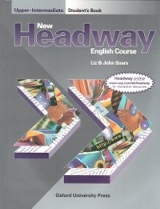 Unit 1
There''s no place like home.
Grammar: The tense system: simple, continuous, perfect, active and passive. Auxiliary verbs do, be, have.
Vocabulary: Compound nouns lifestyle, house-warming, home town. Word formation ''organize organi''zation.
Postscript: Dates. Numbers. Spelling.
Reading: Topic. "Home is where you make it" - a gap fill exercise about a man with an unusual home. "People who emigrate" - two families who move to another country (jigsaw).
Speaking: Exchanging information about families who have emigrated. Discussion - the pros and cons of living in another country.
Listening: A song - Hello Muddah, Hello Fadduh.
Writing: Correcting language mistakes in two informal letters. Identifying mistakes in common.
Unit 2
Been there, done that!
Grammar: Present Perfect - simple and continuous. Continuous verb forms. You''re very kind. You''re being very kind.
Vocabulary: Guessing meaning. Synonyms. Hot Verbs (1) take and put, take my advice, put sb down.
Postscript: Exclamations. Wow! How amazing! Oh! What a surprise!
Reading: Topic. "Death by tourism" - how tourists are ruining the places they visit on holiday.
Speaking: Information gap and roleplay - the Virgo Group. Discussion. Tourism. Discussion - your earliest memories.
Listening: Topic. "World traveler and lavender farmer" - an interview with Natalie Hodgson.
Writing: Note-taking. Position of adverbials. Writing a biography.
Unit 3
What happened was this…
Grammar: Narrative tenses. Past Simple. Past Continuous. Past Perfect: active and passive.
Vocabulary: Adjectives that describe character reckless, unreliable. Suffixes responsible, responsibility. Prefixes irresponsible, self-conscious.
Postscript: Expressing interest and surprise - reply questions "James lives in a castle". "Does he?".
Reading: Topic. "Girl barred from top store" - an exercise on tenses about a girl who was barred from Harrods. An extract from The Mayor of Casterbridge, by Thomas Hardy.
Speaking: Talking about books. Questions about books.
Listening: Topic. "The news". A dramatized version of the extract from The Mayor of Casterbridge. Three people talking about a book they''ve liked.
Writing: A review of a book or film.
Unit 4
It''s a deal!
Grammar: Expressing quantity - a little money, lots of ideas, few friends, not much experience, hardly any food, fewer people. Countable and uncountable nouns - money, dollars, time/times.
Vocabulary: Exports and imports - gold, sugar, spices. Words with variable stress ''export, ex''port, re''fuse, ''refuse, row.
Postscript: Social expressions. Hang on a sec. There''s no point.
Reading: Topic. "The businesswoman who went to Australia and made a fortune" (jigsaw). "Three thousand years of world trade" - an extract from an encyclopaedia.
Speaking: A class survey of shopping habits. A maze - You''ve decided to open a restaurant, but how will you go about it? A group decision-making exercise.
Listening: Topic. "An English couple who opened an English restaurant in France talk about their experiences".
Writing: Note-talking. Research and report writing. Trade in your country.
Unit 5
Whatever will be, will be.
Grammar: Future forms - will do, shall do, going to do. Present Continuous. Present Simple - will be doing/will have done. Tense usage in clauses. When I''ve read the book, I''ll give it back to you.
Vocabulary: Word pairs neat and tidy, give and take, pros and cons. Hot Verbs (2) to be + adverb or preposition. What''s up with you? She''s into yoga.
Postscript: Telephone conversations - beginning a call, ending a call.
Reading: Topic. "This is your captain speaking" - an exercise on tenses. "I''ll marry you, but only if…" - an American couple''s prenuptial agreement leaves nothing to chance.
Speaking: Discussion - who make the best couples? Exchanging information about three people''s arrangements to meet.
Listening: Topic. "Vox pops - eight people talk about the future. The reunion - three old friends arrange to meet (jigsaw).
Writing: Formal and informal letters - recognizing formal style, writing an informal letter.
Unit 6
People, places, and things.
Grammar: Relative clauses. Politicians, who tell lies, … Participles - a girl wearing a red suit. Infinitives. I didn''t know where to go.
Vocabulary: edl-ing adjectives, depressed, depressing. Synonyms in context -writer, author, risky, dangerous.
Postscript: English signs. Do not exceed the stated dose. Diversion ahead.
Reading: Topic. "The man who could buy anything" - a gap fill exercise about Bill Gates. "I''ve never seen anything like it!" - a strange person, place, and a thing (jigsaw).
Speaking: Describing a picture. Exchanging information about the strange person, place, and thing. Group work - devising an advert.
Listening: Topic. "Seven radio advertisements".
Writing: Describing your favorite part of town.
Unit 7
Doing without.
Grammar: Verb patterns - enjoy playing, good at cooking, plan to do, stop, try, remember. Reduced infinitives. I''d love to. You aren''t allowed to.
Vocabulary: Consumer durables - camcorder, mobile phone, microwave. Hot Verbs (3) - get. You''ve got to go. I got back late. Stop getting at me!
Postscript: Soundbites. Eat here or take away? Will passengers in rows A to K - please board now?
Reading: Topic. "Letters between Sean and his grandmother" - an exercise on verb patterns. "The family who turned back the clock" - a family who give up all domestic appliances for three days.
Speaking: Discussion - domestic life fifty years ago, things you couldn''t life without. Discussion - the pros and cons of television.
Listening: A song - Fast car, by Tracy Chapman.
Writing: Contrasting ideas - whereas. However - although. Writing about an invention you couldn''t life without.
Unit 8
Famous for fifteen minutes.
Grammar: Modal auxiliary verbs - probability. She might be at home. He could have left early; other uses - May I go now? Can you ski? You don''t have to come.
Vocabulary: Making sentences stronger - Adverbs and adjectives very clever, absolutely brilliant. Adverbs and verbs strongly agree, totally forget.
Postscript: Exaggeration and understatement. I''m starving. I''m a little puckish.
Reading: Topic. "Jane Austen, the hottest writer in Hollywood" - the famous English novelist who is enjoying a revival.
Speaking: Talking about the lives of famous people. Discussion - the lives of women past and present.
Listening: One side of a phone conversation. An interview with Tim Rice, who wrote the lyrics to Jesus Christ Superstar, and Paul Nicholas, who played Jesus.
Writing: Writing a fan letter.
Unit 9
Nothing but the truth.
Grammar: Questions. Who wants to speak to me? I wonder what he wants. Don''t you like tea? Negatives. I don''t think you''re right. I told her not to go.
Vocabulary: Groups - workaholics, agoraphobics. Making connections in texts - Antonyms happiness, misery, rich/plain food, rich/poor person.
Postscript: Being polite. I''m sorry to bother you, but… A present for me? How kind! You shouldn''t have.
Reading: Topic. "Mysteries of the universe" - puzzles that have plagued human beings for thousands of years.
Speaking: General knowledge quiz. Discussion - retelling a story from another point of view.
Listening: Topic. "Saying I won''t" - a radio programme about people who change their mind at the altar. A song - Waiting at the church.
Writing: Joining sentences. Conjunctions whenever, unless. Adverbs anyway, actually.
Unit 10
Things ain''t what they used to be!
Grammar: Expressing habit - present habit. I''m always losing my keys; - past habit. We''d play on the sand. Belget used to. I''m used to working hard.
Vocabulary: Money, money, money! tight-fisted, extravagant, fall on hard times. Hot Verbs (4) come and go. I''ll go to any lengths. The kinds come first.
Postscript: Time expressions - all day long, the other day, in time, on time.
Reading: Topic. "Living history" - the 100-year-old lady who lives in the past. "People and their money" - who''s rich and who''s poor these days? (jigsaw).
Speaking: Giving a short talk about your first friend or teacher. Attitudes to money. Homelessness.
Listening: Homelessness - interviews with people who live on the streets, and those who try to help them.
Writing: Writing about a period in history.
Unit 11
If only things were different!
Grammar: Hypothesizing - about the present. If only I had a new car!; about the past. I wish I hadn''t said that. You shouldn''t have done that.
Vocabulary: Idioms. I had time to kill. I was at a loose end. Bury your head in the sand.
Postscript: Moans and groans. How many times do I have to tell you? I could kick myself.
Reading: Topic. "Those life''s perfect anyway? - two people''s lives. "Things we never said" - a short story about a failed relationship, by Fiona Goble.
Speaking: Roleplay - two lovers tell each other the truth. Acting out a dramatic scene.
Listening: Topic. A radio play, based on the text. "Things we never said". "Family secrets" - two people talk about a secret in their lives.
Writing: Writing a play with stage directions.
Unit 12
Icons.
Grammar: Noun phrases a boy licking an ice-cream. Articles and determiners. It''s a city in the north, each/every/either, both/all. Adding emphasis - word order, the passive. What annoys me…
Vocabulary: Homophones war or wore? Homonyms a dusty plain, plain food.
Postscript: Linking and commenting personally, obviously, ideally, basically.
Reading: Topic. "Michelangelo" -one of the world''s greatest artists. "It blows your mind!" - eye-witness accounts of the first atomic explosion.
Speaking: Discussion - famous photos of the twentieth century. Discussion - how the atomic bomb changed history.
Listening: Topic. Children''s jokes. Various people describe great events of the twentieth century.
Writing: Describing a career. Word order and focus of attention. |
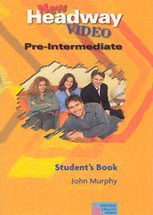 Unit 1
People
Grammar: Question forms (1): - What do you do? - Are you married? Present Continuous: - I''m enjoying the course.
Vocabulary: Animals. Using a bilingual dictionary. Words with more than one meaning. - a book to read; to book a room in a hotel
Everyday English: Social English. - Have a good weekend! - Same to you!
Reading: Topic. ''Hello, people of the world!'' - People, the great communicators
Speaking: Discussion - People and animals. Discussion - Living in capital cities, and relationships between parents and children
Listening: Topic. Leaving home - A father and his daughter talk (jigsaw)
Writing: The writing input is in the Workbook. The page numbers in this column refer to the Workbook (WB). Writing letters (1). Informal letters WB
Unit 2
Lifestyles
Grammar: Present Simple: - He comes from Majorca. Have/have got: - Do you have.? - Have you got.?
Vocabulary: Vocabulary networks: - electrical goods. - a room in your house.
Everyday English: Numbers and prices.
Reading: Topic. How others see the British (jigsaw)
Speaking: Discussion - Tourists in your country. Discussion - Strict schools.
Listening: Topic. Life in a Japanese school.
Writing: Linking words (1)WB. Describing a person.
Unit 3
Fact and fiction
Grammar: Past Simple: - What did you do last night? Past Continuous: - The sun was shining.
Vocabulary: Irregular verbs. Verbs and nouns that go together. - tell a joke. Words and prepositions that go together. - listen to music
Everyday English: Time expressions: - dates; - at six o''clock; - on Saturday
Reading: Topic. An extract from a James Bond story. The Man with the Golden Gun
Speaking: Retelling a story from pictures.
Listening: Topic. An interview with the biographer of Ian Fleming.
Writing: Writing a story (1) WB.
Test 1
Unit 4
Going shopping
Grammar: Expressions of quantity: - some and any; - much and many; - a lot of; - a few and a little. Articles: - a, the, and the zero article
Vocabulary: Clothes, food. and professions. Food and cooking.
Everyday English: Polite requests and offers. - Can/could I.? - Can/could you…? - I''ll.
Reading: Topic. A magazine article about the famous store, Marks & Spencer
Speaking: Talking about a favourite store. Group work - Devising an advertisement.
Listening: Topic. Five radio advertisements.
Writing: Filling in forms WB.
Unit 5
Plans and ambitions
Grammar: Verb patterns (I): - want/hope/would like to do; - like/enjoy/love doing Going to: - I''m going to be a doctor. Will: - I''ll give you a lift.
Vocabulary: Approaches to vocabulary learning. Word families: - ''photograph; - photo''graphic
Everyday English: Spelling
Reading: Topic. A questionnaire - How ambitious are you?
''The right person for you'' - An article from the Today newspaper about computer dating (jigsaw) Speaking: A class survey - How ambitious are you? Discussion - Arranged marriages.
Listening: Topic. How different learners of English organize their vocabulary learning.
Writing: Writing postcards WB.
Unit 6
Descriptions
Grammar: What. like? - What''s Rome like? Comparative and superlative adjectives: - big, bigger, biggest
Vocabulary: Synonyms: - lovely, beautiful Antonyms: - poor, wealthy; - tidy untidy
Everyday English: Directions: - prepositions of place (opposite, behind); - prepositions of movement (along, over)
Reading: Topic. ''The richest man in the world'' - A newspaper article about the Sultan of Brunei
Speaking: Describing people and places. Discussion - Who are the rich people in your country?
Listening: Topic. Kate Leigh talks about living in Madrid.
Writing: Relative clauses (1) WB. Describing a place.
Test 2
Unit 7
Fame
Grammar: Present Perfect Simple (1): - to express experience. Have you ever been lo Russia? - to express unfinished past. I''v lived here for ten years.
Vocabulary: Irregular verbs. Homophones: - here, hear. Adverbs: - slowly, too
Everyday English: Short answers: - Yes, 1 do. - No. 1 can''t.
Reading: Topic. ''Paul Newman - actor, director, racing driver'' - A magazine article
Speaking: Roleplay - Interviewing a group of musicians.
Listening: Topic. An interview with Paul Carrack, a pop musician.
Writing: Relative clauses (2) WB.Writing a biography
Unit 8
Pros and cons
Grammar: Have to: - 1 have to work hard. Should: - He should see a doctor
Vocabulary: Professions. Nouns that go together: - post office, headache. Make or do? - make a phone call; - do the shopping
Everyday English: Invitations. Refusing and accepting invitations.
Reading: Topic. Two special teenagers - David, a computer programmer, and Kimora, a top model
Speaking: Discussion - Teenagers and their parents. Discussion - Giving advice about visiting your country.
Listening: Topic. Three people giving advice about visiting their country.
Writing: Writing letters (2) WB. Formal letters.
Unit 9
Life in the 21st century
Grammar: Will: - It will cost a lot of money. First Conditional: - If I do more work, I''ll puss ту exams. Time clauses: - when as soon as
Vocabulary: Rail travel. Air travel.
Everyday English: Travelling: - at the checking desk; - at a railway ticket office.
Reading: Topic. ''The road to ruin?'' - An article about the problem of transport
Speaking: Discussion - How ''green'' are you? Roleplay - How to solve the traffic problems in your town. A survey on people''s travel habits
Listening: Topic. John Baines talks about how he tries to be ''green''
Writing: Linking words (2) WB. Advantages and disadvantages
Test 3
Unit 10
The way we were
Grammar: Used to: - 1 used to smoke, but 1 don''t any more. Question forms (2): - Who told you that? Questions with a verb + preposition: - What are you looking at?
Vocabulary: Male and female words: - actor, actress; - bikini, swimming trunks
Everyday English: Question tags: - It''s a lovely day, isn''t it
Reading: Topic. ''Dying for the vote'' - An article about the suffragette movement in England
Speaking: Discussion - The role of men and women in your country.
Listening: Topic. The taxi-driver and the Duchess - two people talk about when they were young (jigsaw)
Writing: Making notes to write a composition WB.
Unit 11
Read all about it!
Grammar: Passive: - Coca-Cola is sold all over the world. - It was invented in 1886.
Vocabulary: Verbs and nouns that go together: - win a match. Words and prepositions that go together: - laugh at a joke
Everyday English: Notices: - Out of order
Reading: Topic. Four newspaper articles (jigsaw)
Speaking: Talking about a newspaper article you have read.
Listening: Topic. A radio programme about the world''s most loved car, the Volkswagen Beetle.
Writing: Writing a review of a book or film WB.
Unit 12
Adventure!
Grammar: Verb patterns (2): - ask/tell somebody to do; - make/let somebody do; - decide/sturt/try/manage to do. Infinitives after adjectives: - It''s easy to learn a language. Infinitive of purpose: - 1 came to Oxford to learn English.
Vocabulary: Adverbs. - clearly, carefully. -ed and -ing adjectives: - interested, interesting
Everyday English: Time: - It''s twenty past six. - It''s 6.20.
Reading: Topic. Two English heroes. King Arthur and Robin Hood (jigsaw)
Speaking: Heroes from your country. Discussion - UFOs. Retelling a story from pictures. Group work - Devising a story about meeting an alien.
Listening: Topic. An interview with a man who says he has seen a UFO and spoken to the aliens in it.
Writing: Adverbs WB. Writing a story (2)
Test 4
Unit 13
Dreams and reality
Grammar: Second Conditional: - If I were the Queen. I''d have servants. Might: - 1 might go to university, hut I''m not sure.
Vocabulary: Multi-word verbs: - lake off, look after
Everyday English: Social expressions: - What a pity! Never mind!
Reading: Topic. ''The Dream Game'' - How our dreams can help us to understand our personality
Speaking: Group work - Analysing our dreams.
Listening: Topic. A radio programme about people of mixed nationality.
Writing: Writing letters (3) WB. Formal and informal letters.
Unit 14
Giving news
Grammar: Present Perfect Simple (2): - to express present result /''re lost my wallet. Present Perfect Continuous: - I''ve been learning English for three years.
Vocabulary: Word families and stress: - ''celebrate, cele''bration; -act, active, acting
Everyday English: Telephoning.
Reading: Topic. An extract from Airport International about the early days of air travel
Speaking: Talking about your experiences of flying. Roleplay - Phoning a friend for a chat.
Listening: Topic. A telephone conversation between Justin and his mother.
Writing: Writing letters (4) WB. Expressions in different kinds of letters
Unit 15
All you need is love
Grammar: Past Perfect: - They had met only one week earlier. Reported statements: - She said that she was leaving. Reported questions: - She asked me if 1 had seen John.
Vocabulary: Guessing the meaning of unknown words. bring/take; come/go; get. - She''s getting better.
Everyday English: Saving goodbye
Reading: Topic. ''The man who could turn back the clock'' - A parable with two possible endings
Speaking: Discussion - Parables and fables. A love poem.
Listening: Topic. A love song - Elvis Presley''s The girl of My Best Friend.
Writing: Writing a story (3) WB.
Test 5 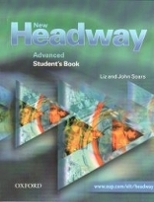 |

